On this day, I set out on a hot spring tour of Nyuto Onsen in Akita.
Nyuto Onsen consists of seven different hot spring inns:
[list class=”li-chevron li-mainbdr main-c-before”]
- Tsuru no Yu
- Myō no Yu
- Kuroyu Onsen
- Ganiba Onsen
- Magoroku Onsen
- Ogama Onsen
- Kyukamura Nyuto Onsen
[/list]
Among them, Myō no Yu was closed on Tuesday, Kuroyu Onsen was shut for the winter, and Kyukamura is a more modern facility that didn’t quite fit the traditional atmosphere I was looking for on this trip.
So, I decided to visit Ogama Onsen, Magoroku Onsen, and Ganiba Onsen—all in the midst of a heavy snowfall!
(Photos by my other website ushigyu.net)
First Stop: Ogama Onsen – Get Your Nyuto Onsen Tour Pass
Before setting out, I picked up a Nyuto Onsen Tour Pass at Tsuru no Yu, where I was staying.
This pass allows access to all seven hot springs for 1,800 yen and is valid for one year. However, it is only available for guests staying at one of the participating inns.
Since individual entry fees range from 500 to 800 yen per bath, this pass is a great deal if you plan to visit at least four locations.
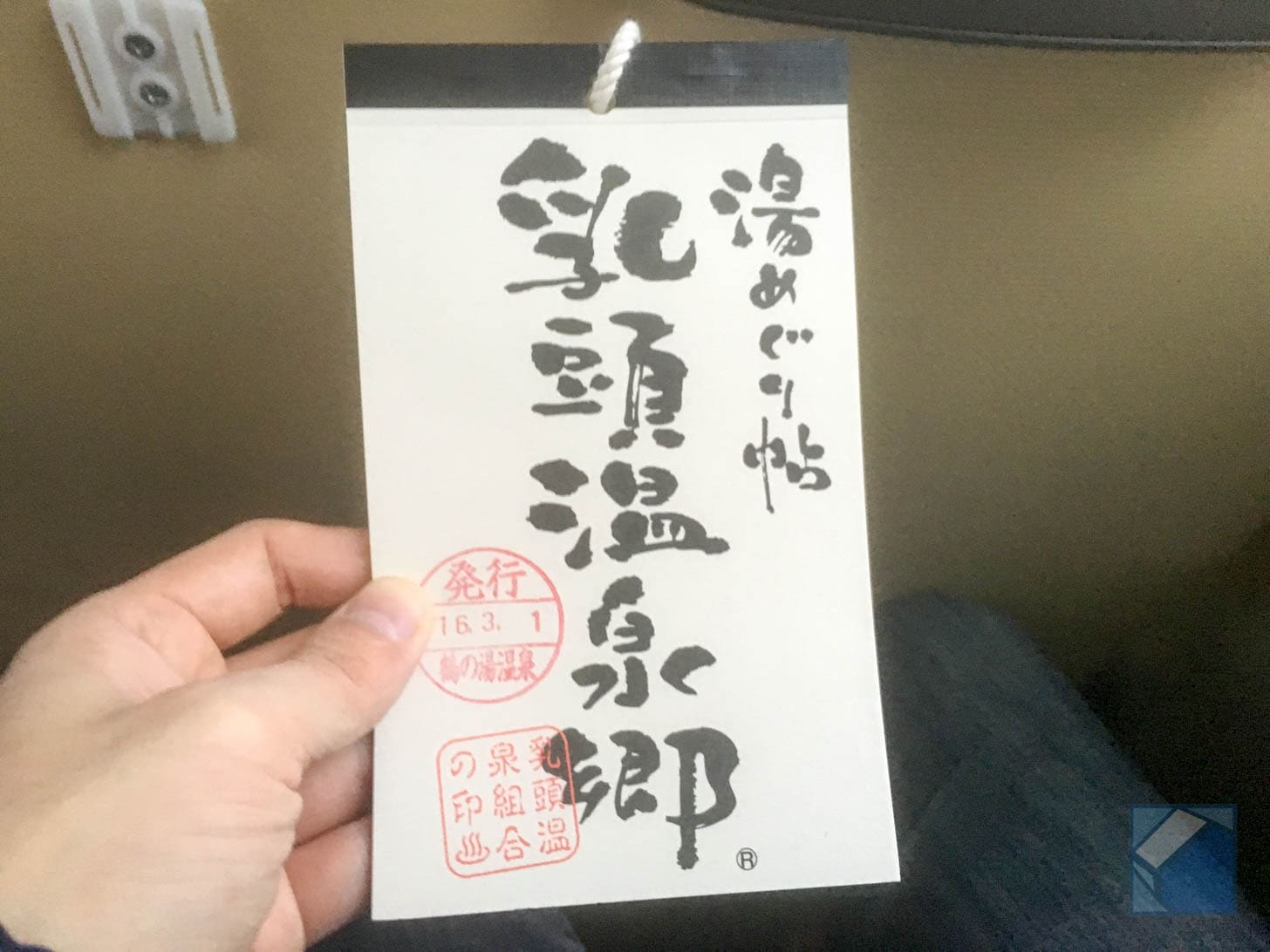
From Tsuru no Yu, I took the Yumeguri Shuttle Bus to Ogama Onsen.
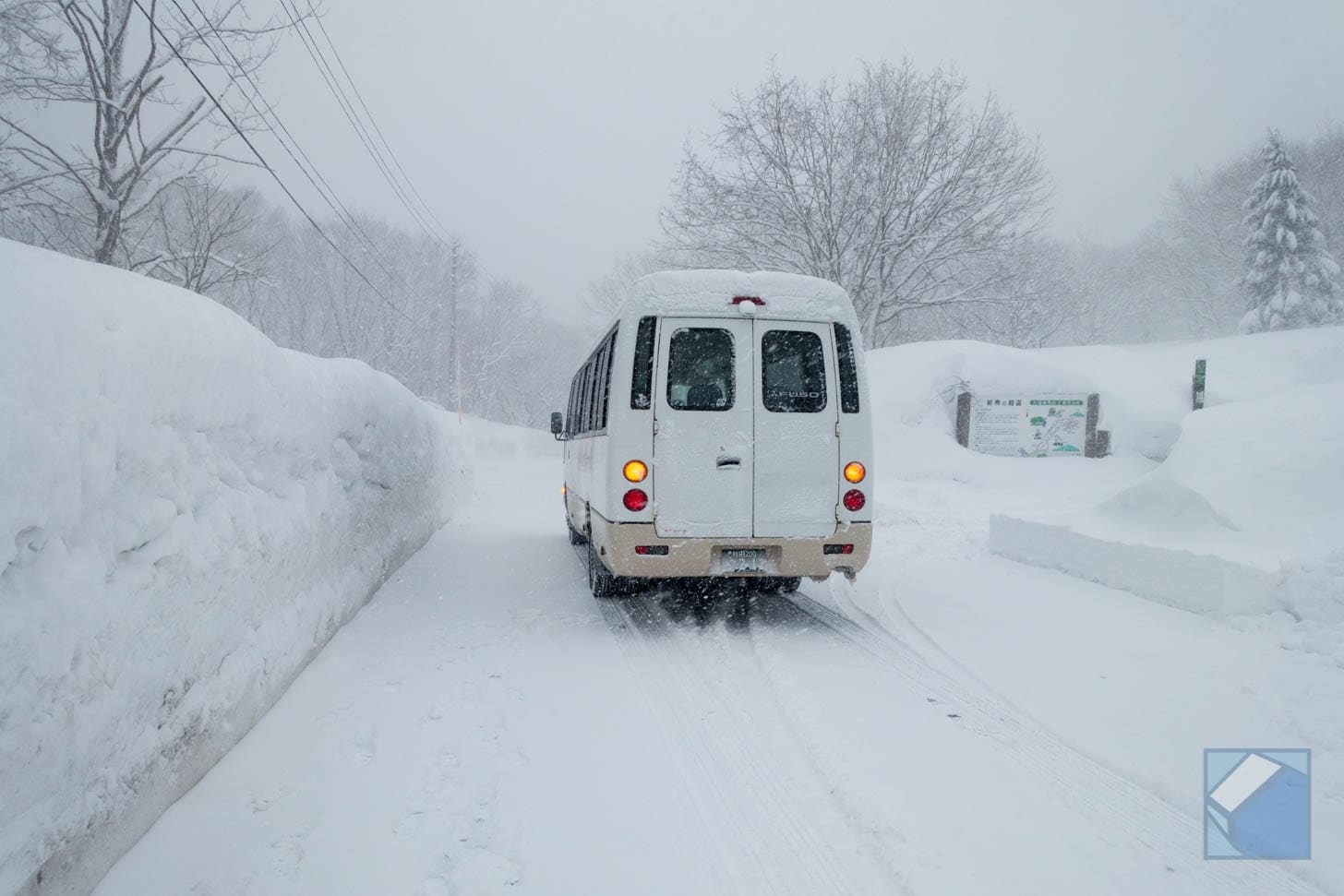
Since this bus only runs once every two hours, be sure to check the schedule in advance if you plan to use it.
Although it was early March, the snowstorm was quite intense that day.
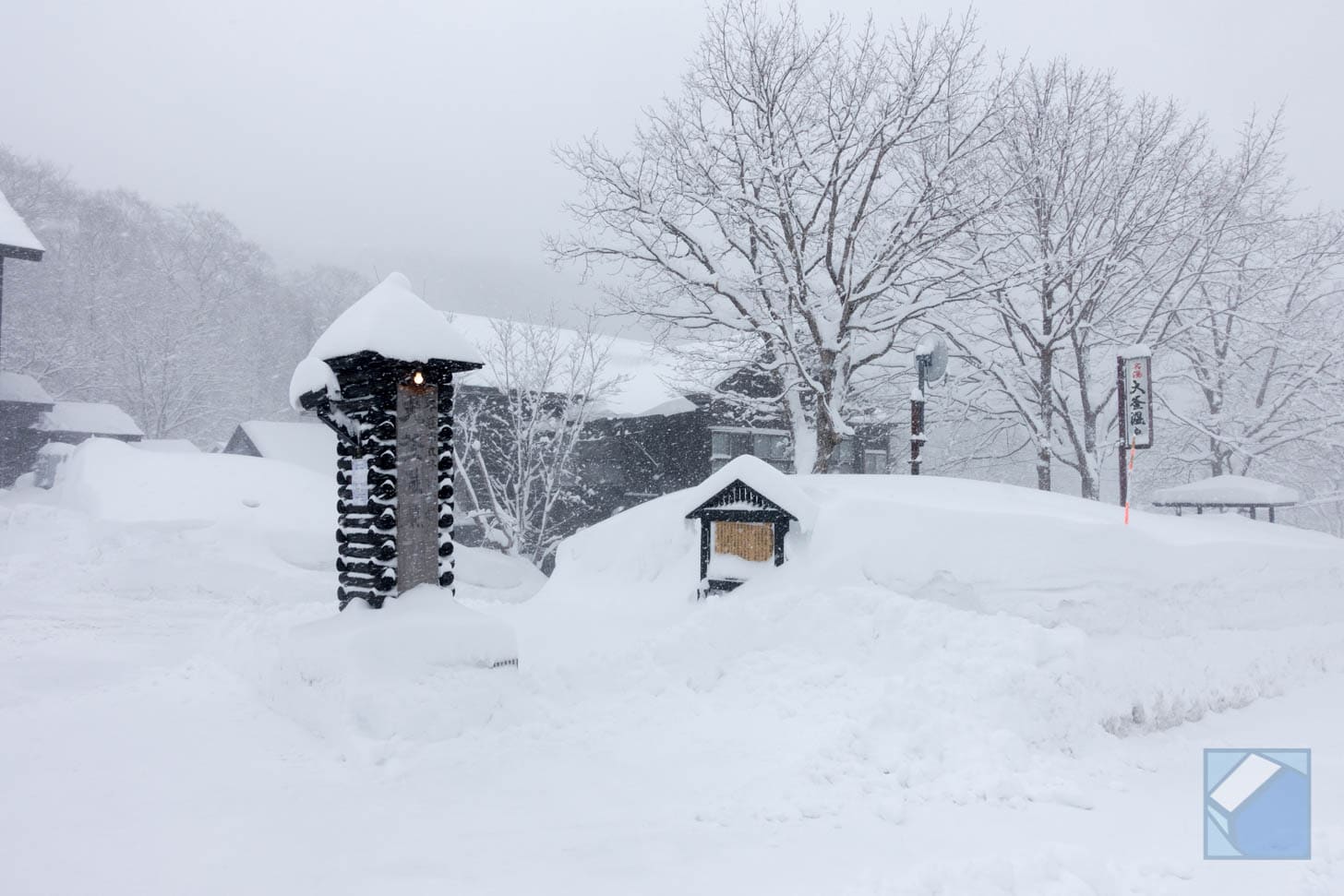
The historic atmosphere of Ogama Onsen was stunning.
Apparently, the building was originally a wooden schoolhouse that was relocated and repurposed.
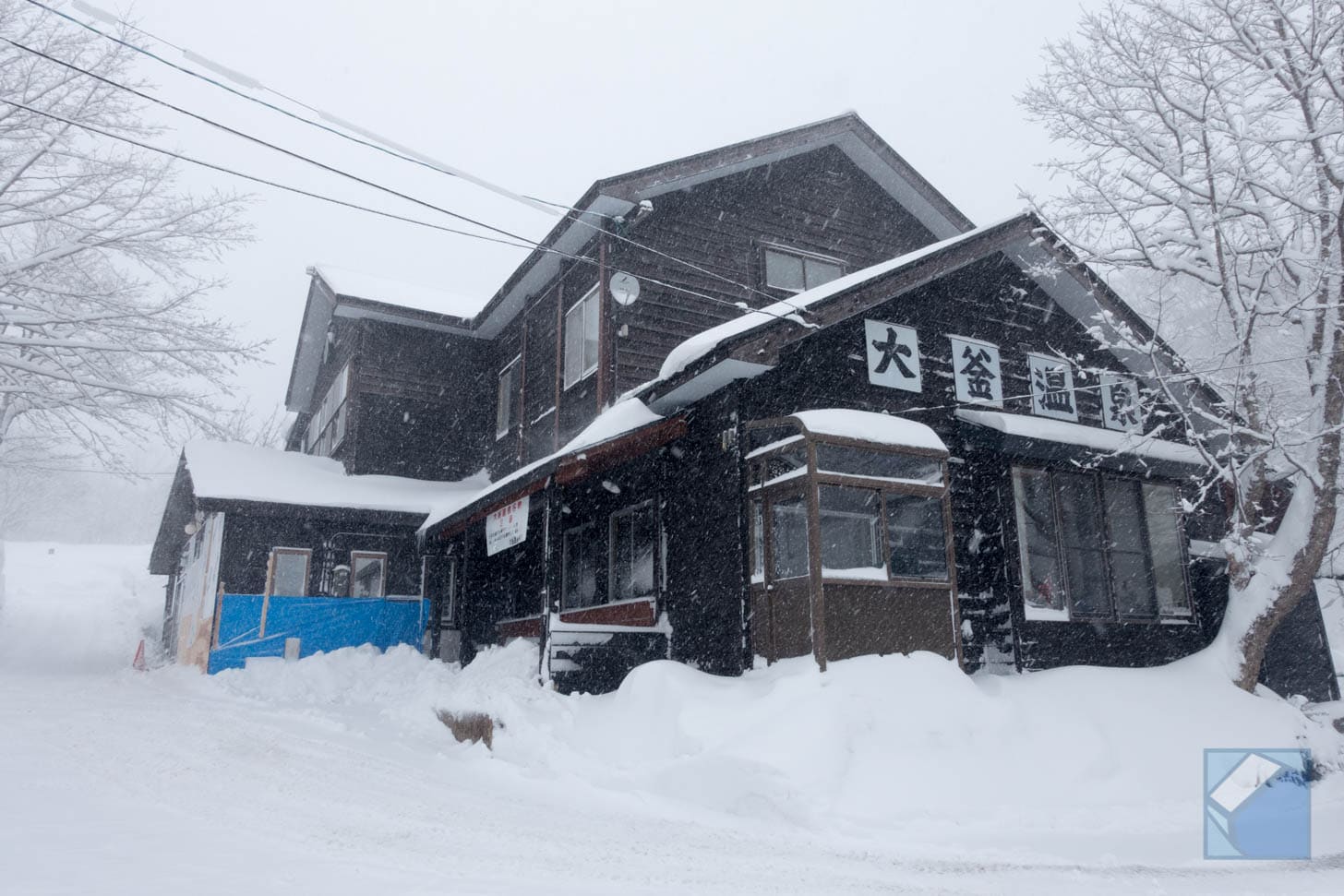
I carefully stepped through the deep snow, searching for the entrance. Is this the way in?
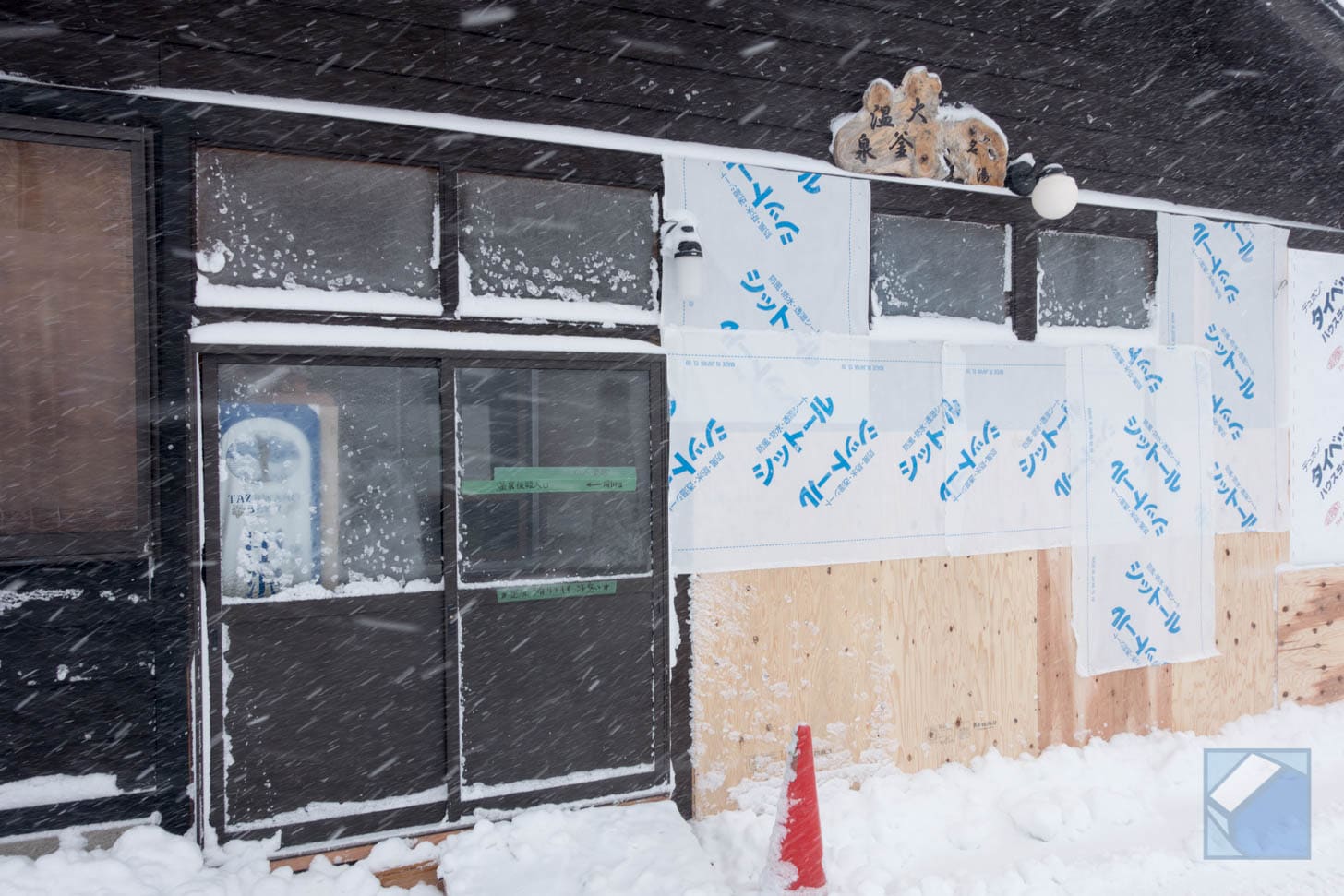
At the reception, I presented my Yumeguri Pass to the friendly innkeeper.
“Welcome! You must be tired from traveling in this snow,” she said cheerfully.
She went on to joke, “It’s like this every year… I’d love to move to Fukuoka instead! Hahaha.”
These little moments of warmth made the visit even more special.
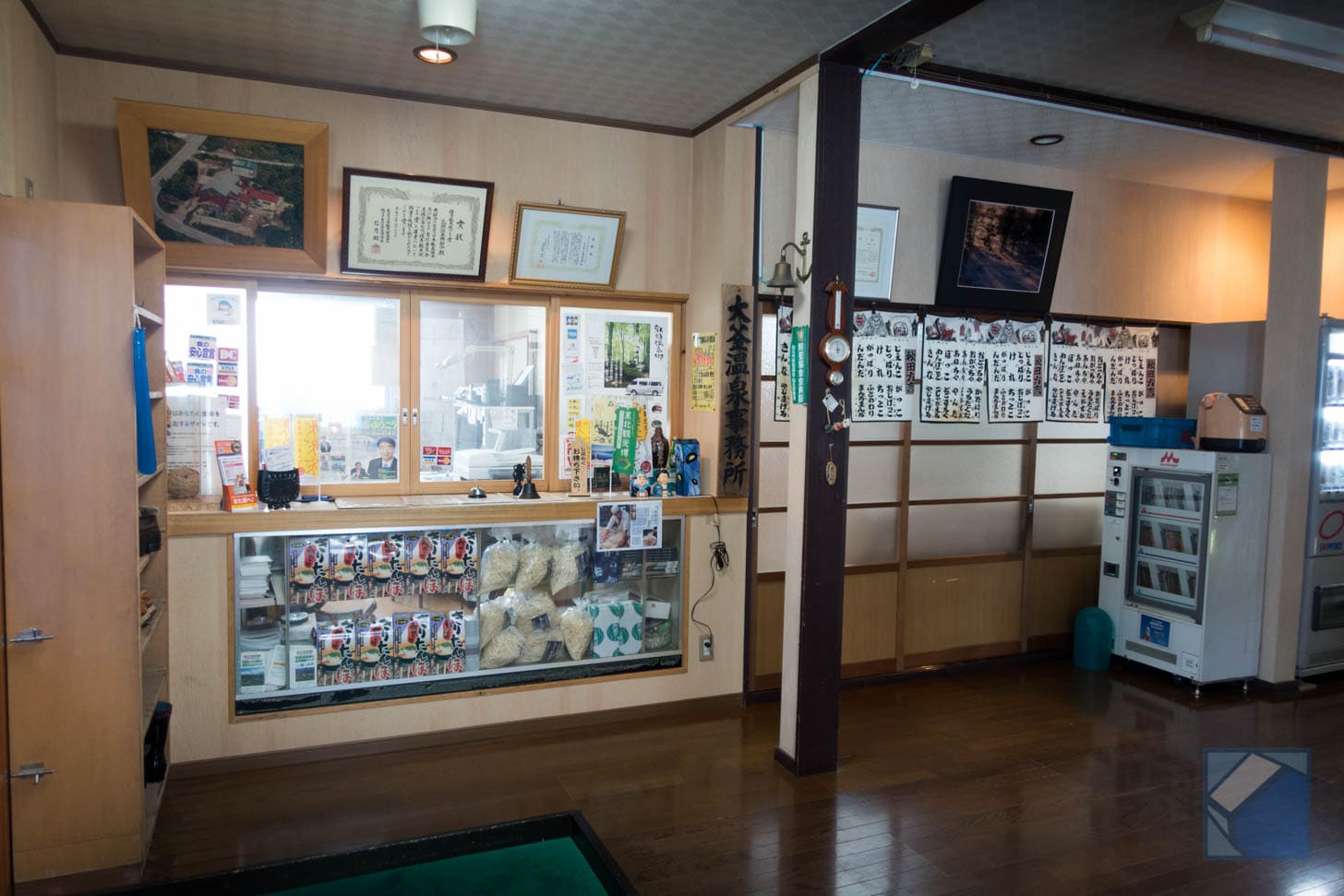
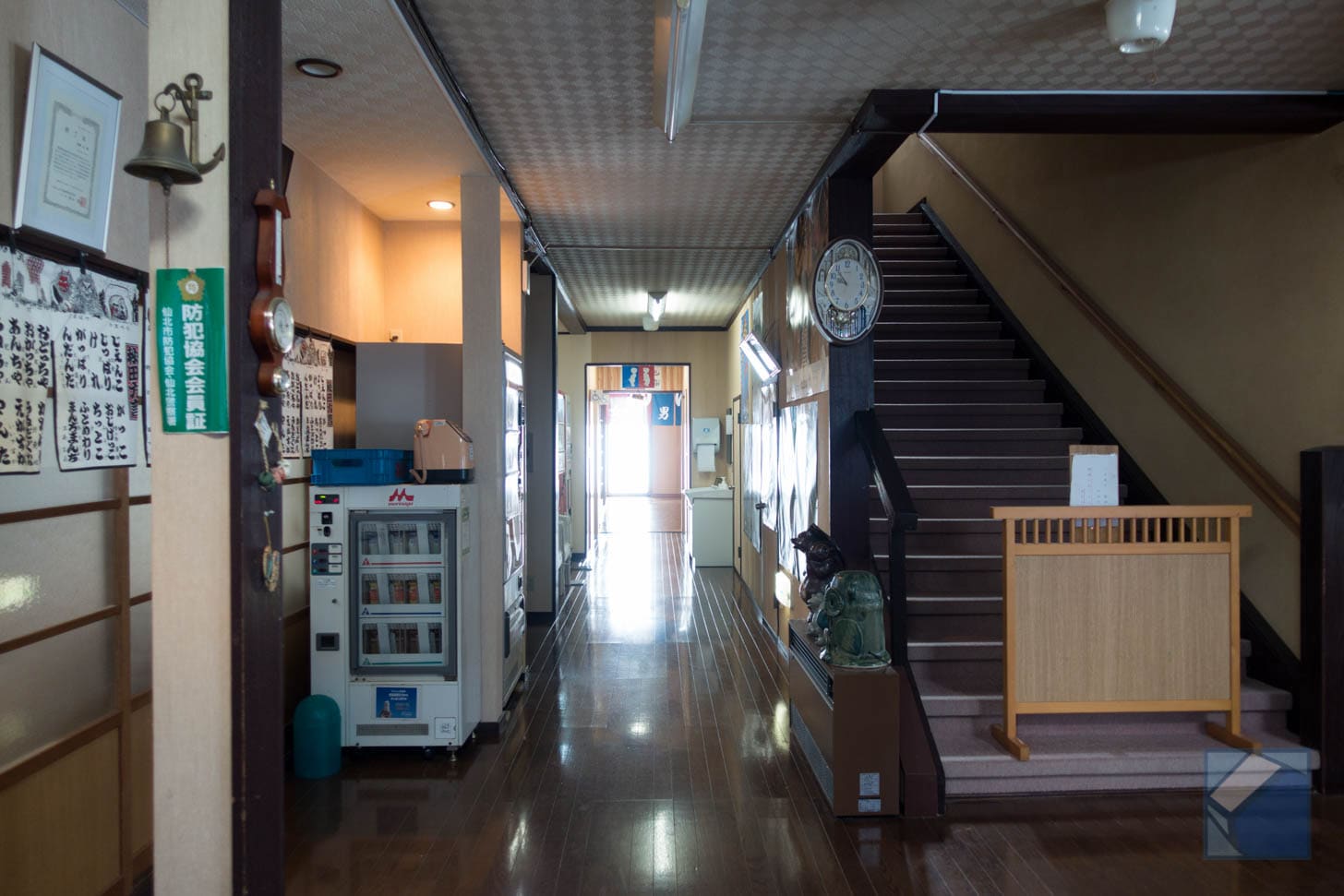
Unlike some of the other hot springs in the area, Ogama Onsen does not have mixed-gender baths. Instead, there are separate men’s and women’s baths, each featuring a small open-air section.
When I visited, the indoor bath was perfectly warm, but the outdoor bath was surprisingly cold—almost uncomfortably so.
In contrast, the indoor bath at Tsuru no Yu had been scorching hot, making me realize how difficult it must be to regulate temperatures in such extreme winter conditions.
By the way, Ogama Onsen also offers accommodations, making it an option for an overnight stay.
The Challenging Path to Magoroku Onsen – Beware in Winter!
Next, I took the trail behind Ogama Onsen to reach Magoroku Onsen, known as the most secluded hot spring in Nyuto Onsen.
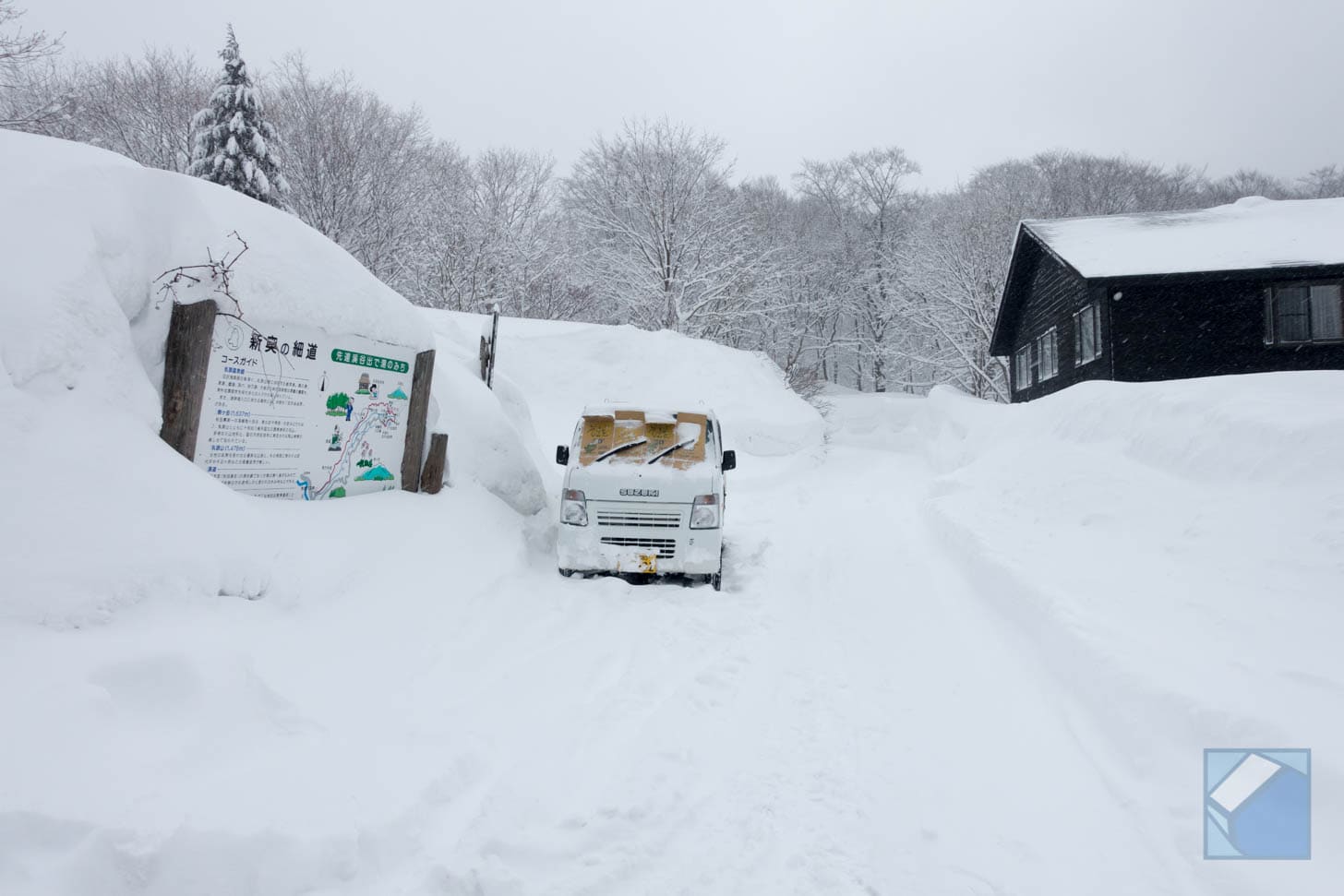
If you’re checking Google Maps, this trail may appear to be incomplete, but rest assured—it does lead all the way to Magoroku Onsen.
If you’re unsure, you can always ask the inn staff for directions.
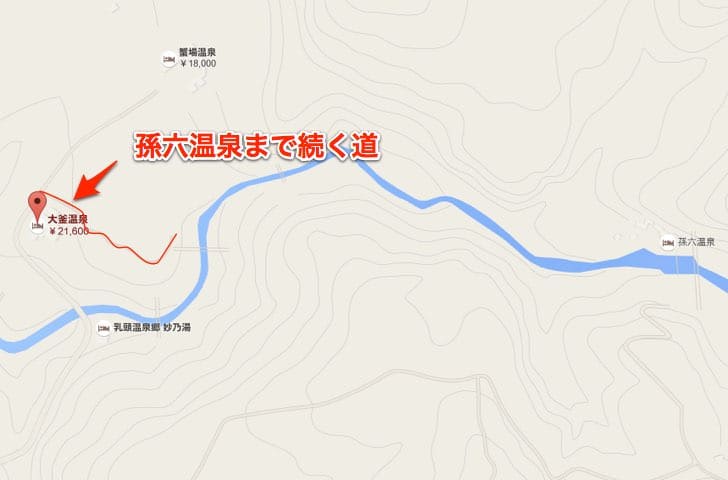
This path is called “Shin Oku no Hosomichi” (The New Narrow Road to the Deep North).
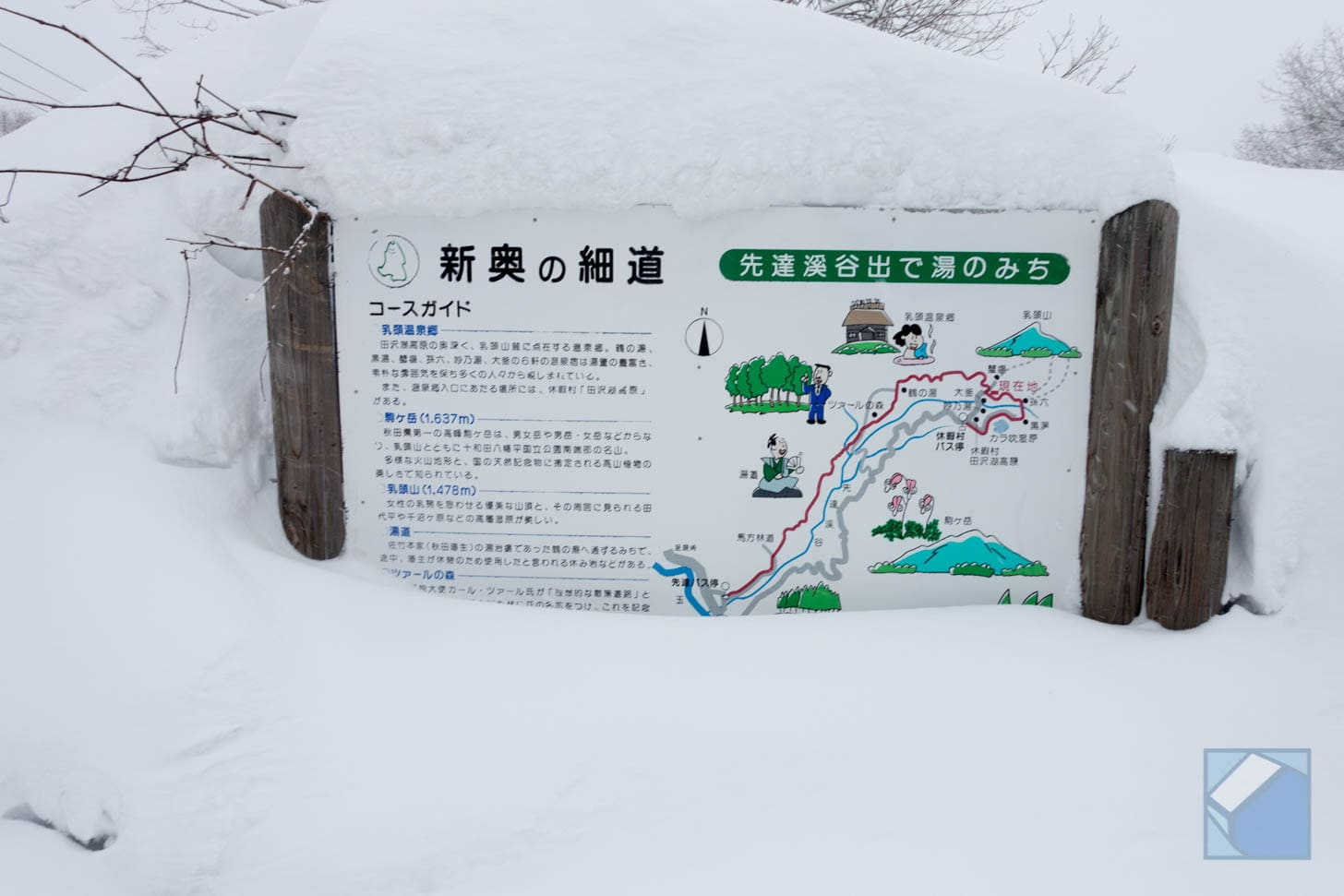
A sign confirmed that we were still on the right track. With courage, I pressed onward.
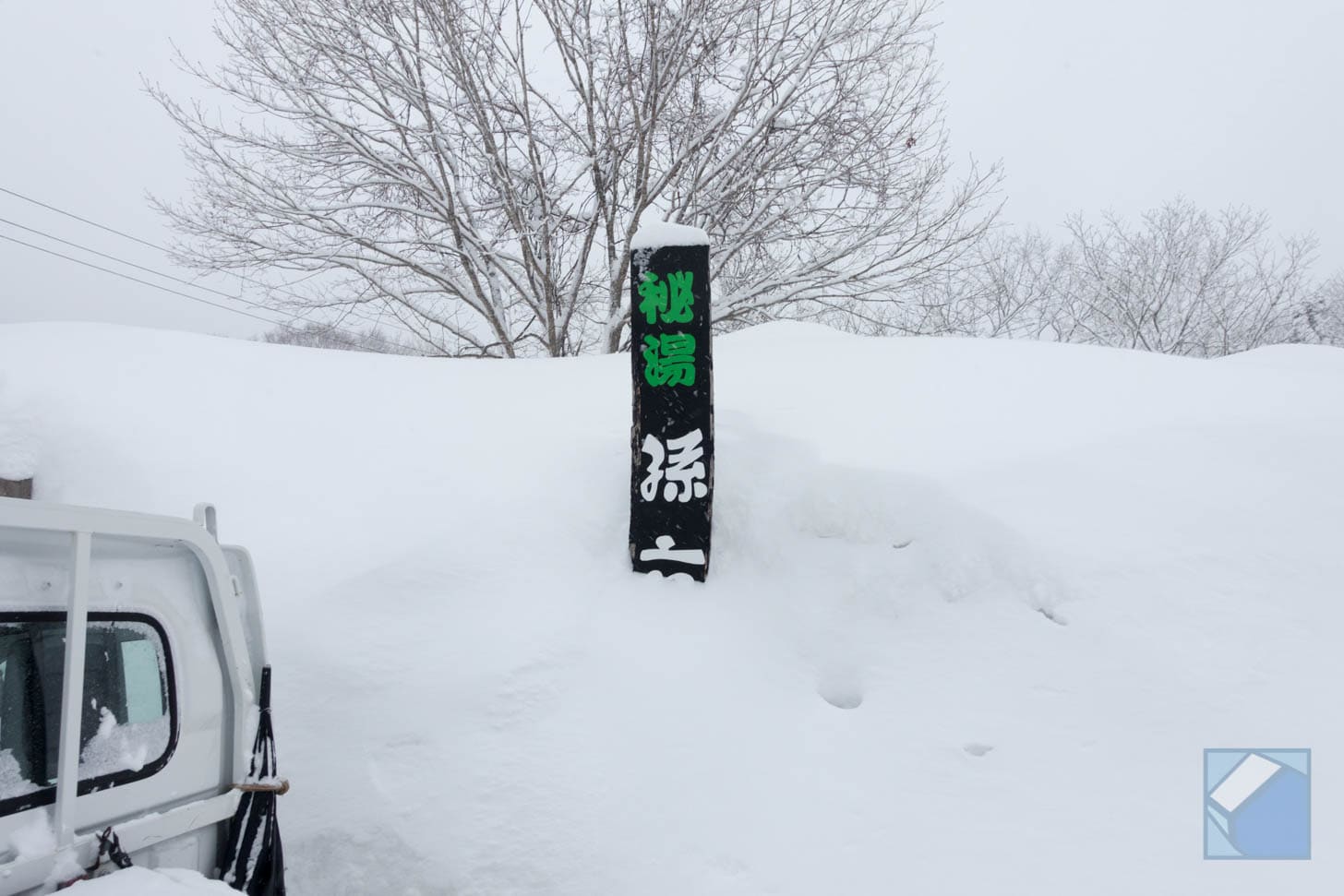
Surrounded by a vast white landscape, I trudged forward, trusting that the onsen lay ahead.
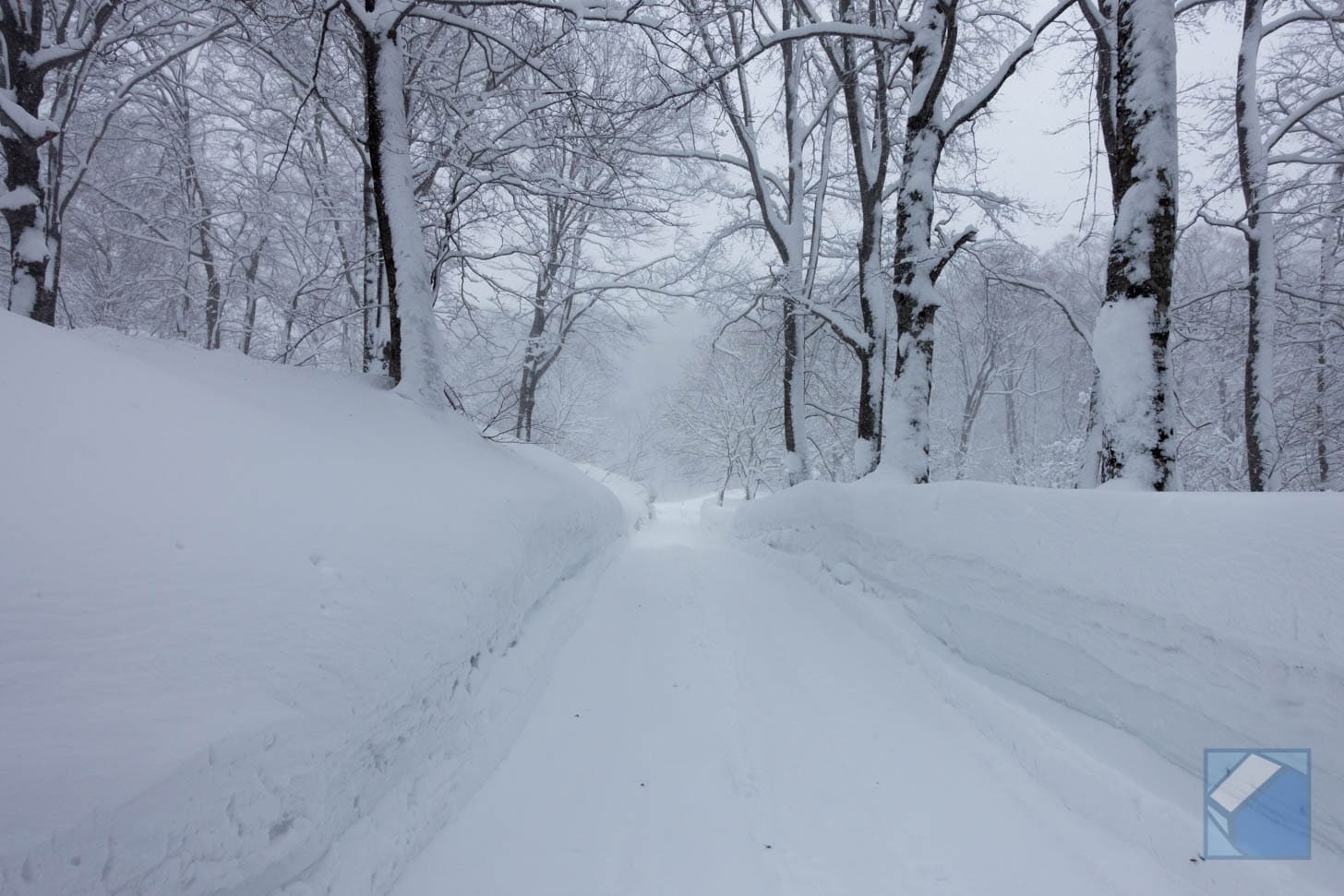
After about 20 minutes of trekking through deep snow, I finally spotted a small bridge—a sign that the onsen was near!
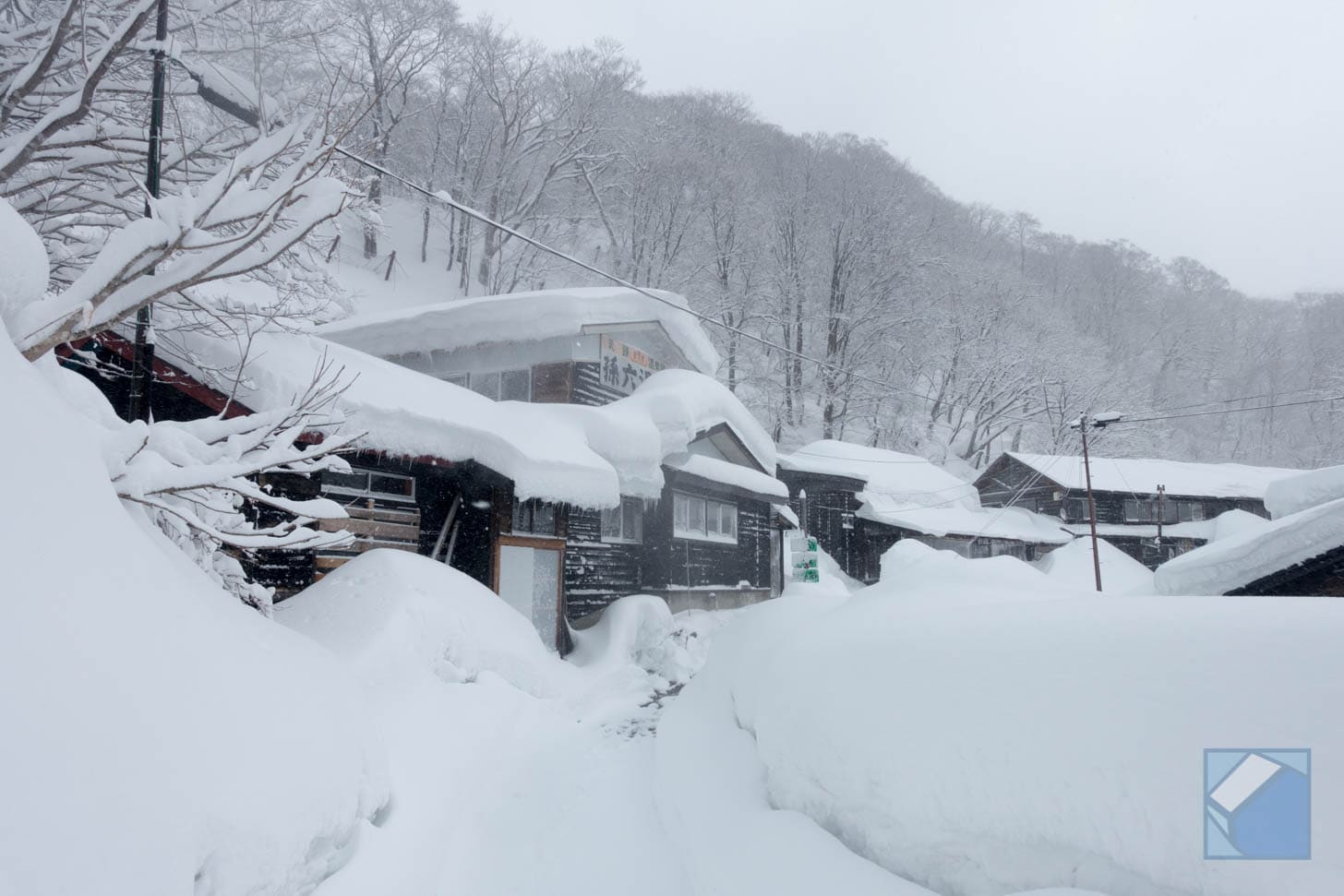
And there it was—Magoroku Onsen, nestled deep in the mountains, looking like a scene from an old Japanese enka song.
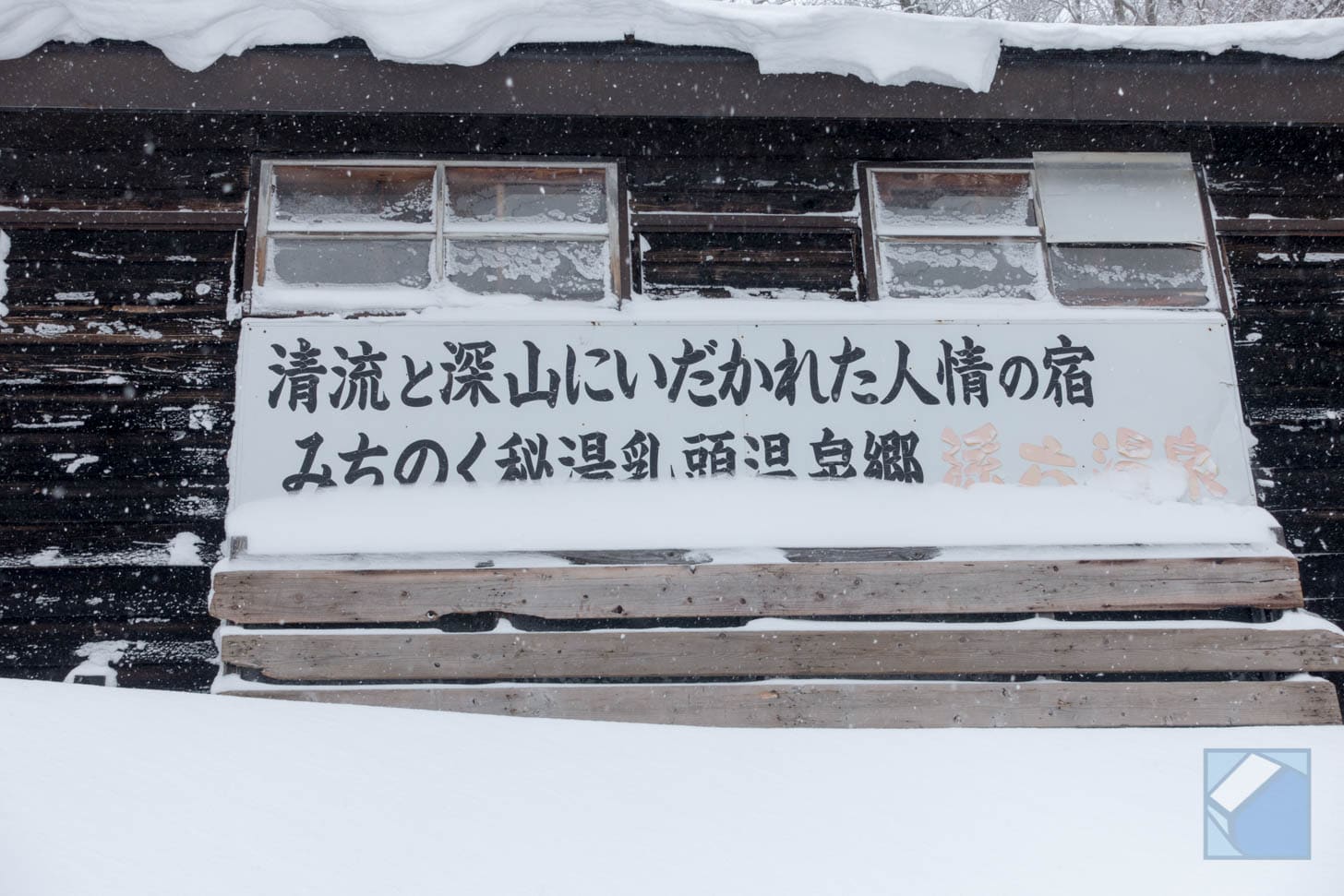
The innkeeper, wearing a tracksuit, greeted me with a warm “Good job making it here!”
The journey was tough, but the experience was truly unforgettable.
Magoroku Onsen: A Rustic and Secluded Hot Spring
Magoroku Onsen is known for its remote location and traditional Japanese charm.
The innkeeper, dressed casually in a tracksuit, greeted me warmly, saying,
*”Good job making it here!”*
It was a tough journey through the snow, but reaching this hidden hot spring made it all worthwhile.

Inside, the traditional wooden interior exuded a nostalgic atmosphere.
The floors were slightly wet from guests walking in and out of the baths, adding to the authentic onsen experience.
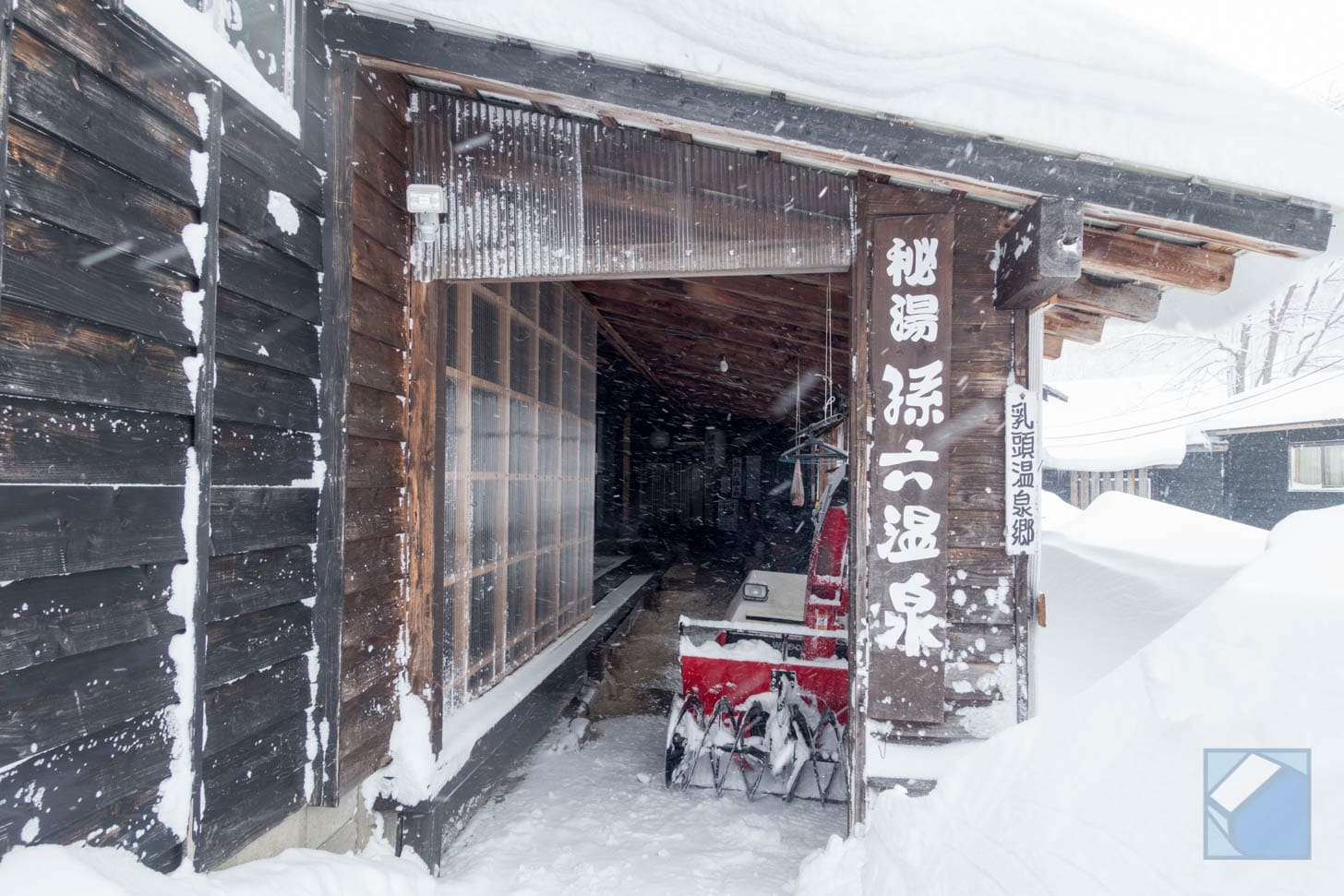
At the reception, I presented my Nyuto Onsen Tour Pass and received a locker key in exchange.
The men’s and women’s baths are separate, with a mixed-gender outdoor bath available as well.
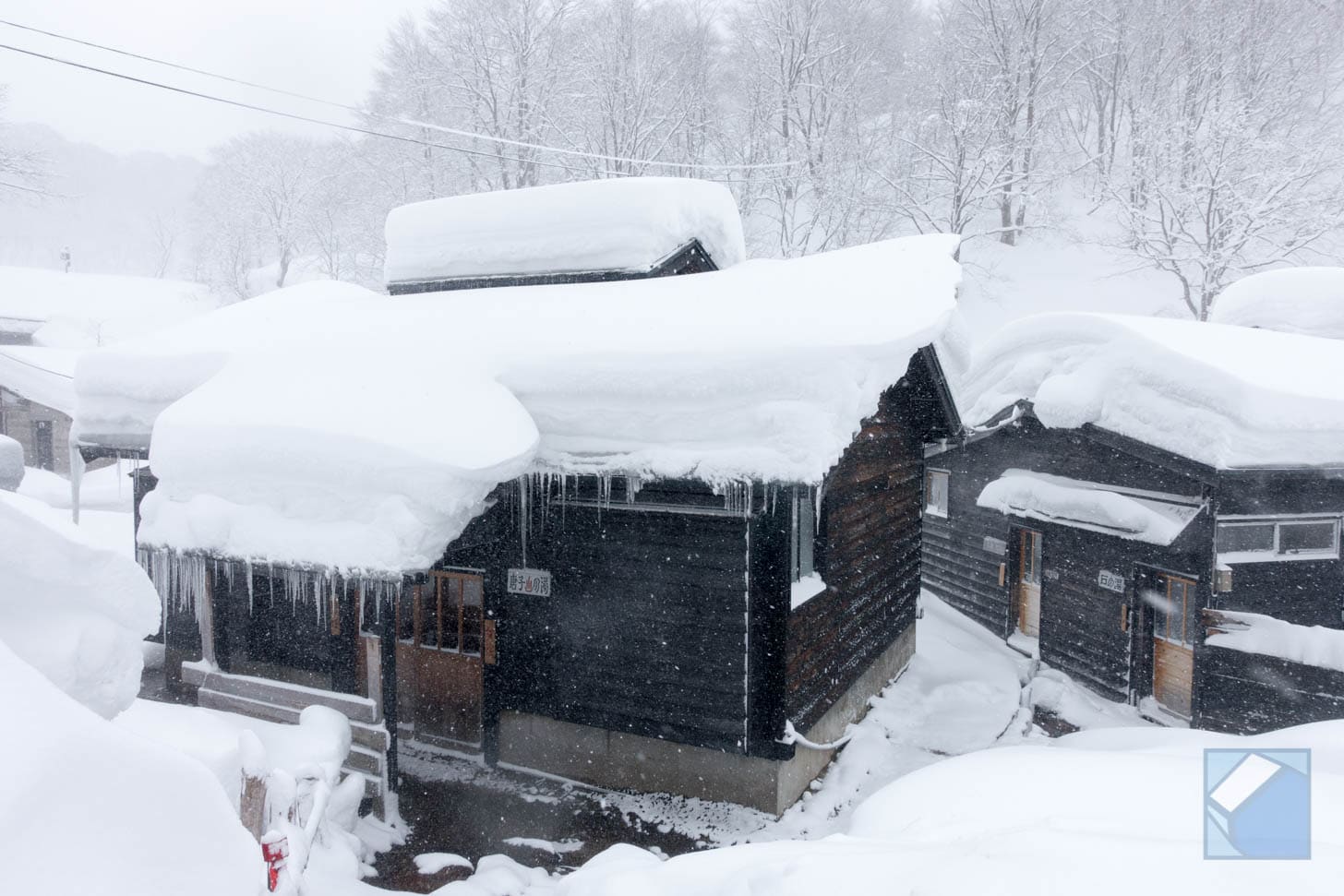
The hot spring water at Magoroku Onsen is known for its strong sulfur content, giving it a milky white appearance and a distinctive scent.
The outdoor bath, covered in snow, was especially inviting.

Taking a dip in the steaming open-air bath while surrounded by a winter wonderland was an unforgettable experience.
This kind of onsen bath—where the scenery, the water, and the atmosphere all come together—is truly one of Japan’s hidden gems.
Ganiba Onsen: The Final Stop on My Nyuto Onsen Tour
After relaxing at Magoroku Onsen, I continued on to my third stop: Ganiba Onsen.
Compared to the other hot springs, Ganiba Onsen had a more modern and polished look while still maintaining a traditional charm.
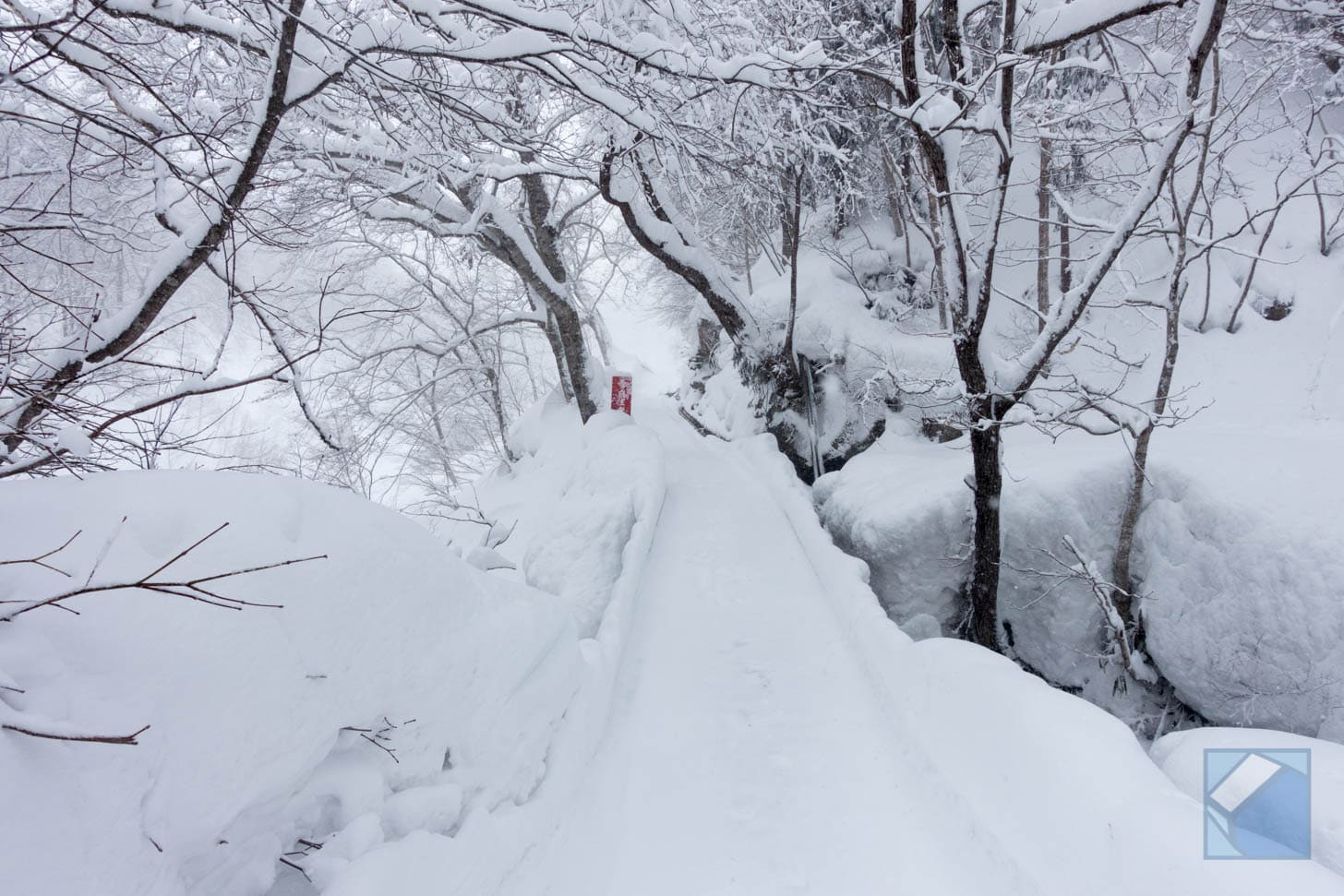
The reception area was well-maintained, and the staff greeted visitors warmly.
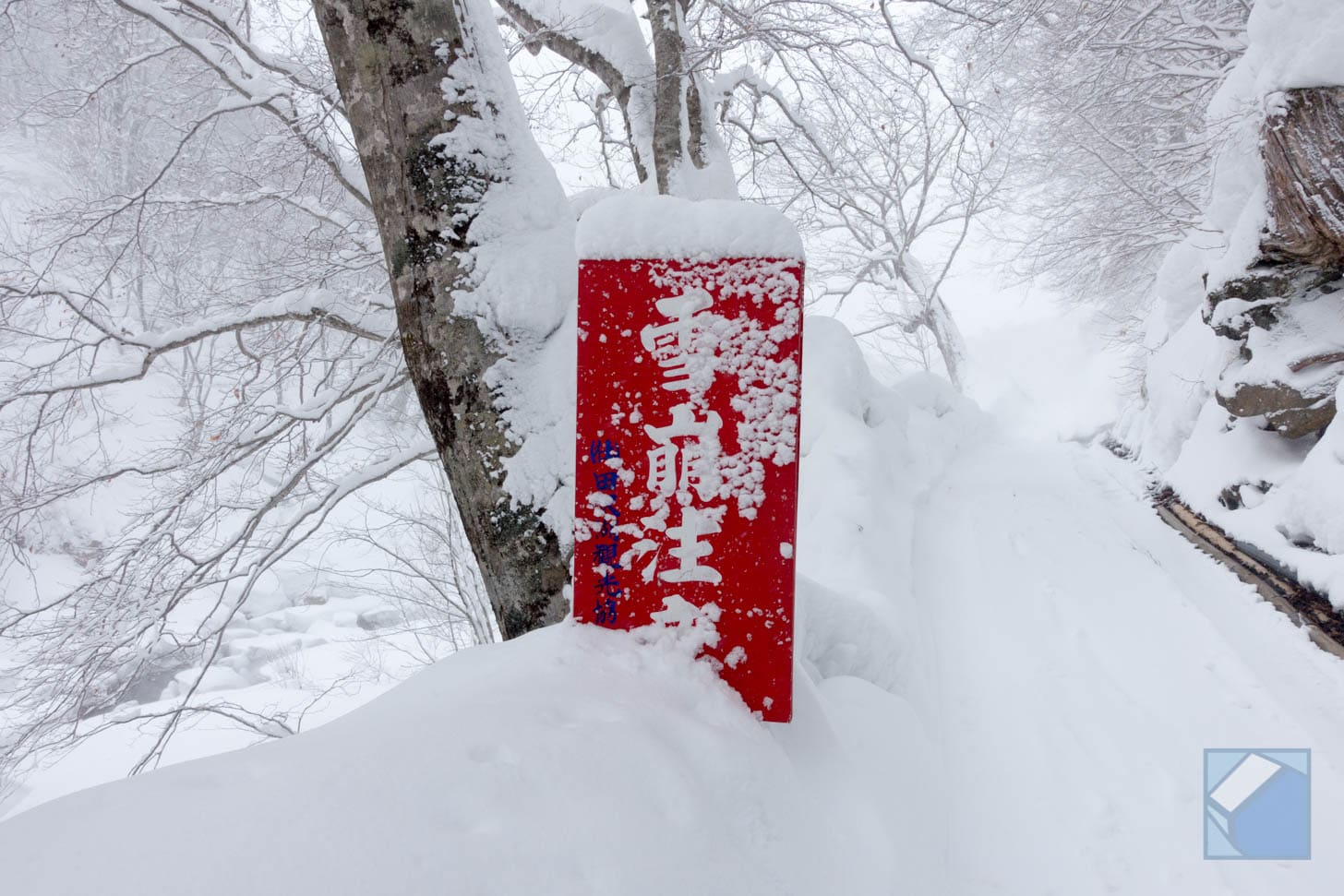
Ganiba Onsen is famous for its outdoor bath nestled in a natural setting.
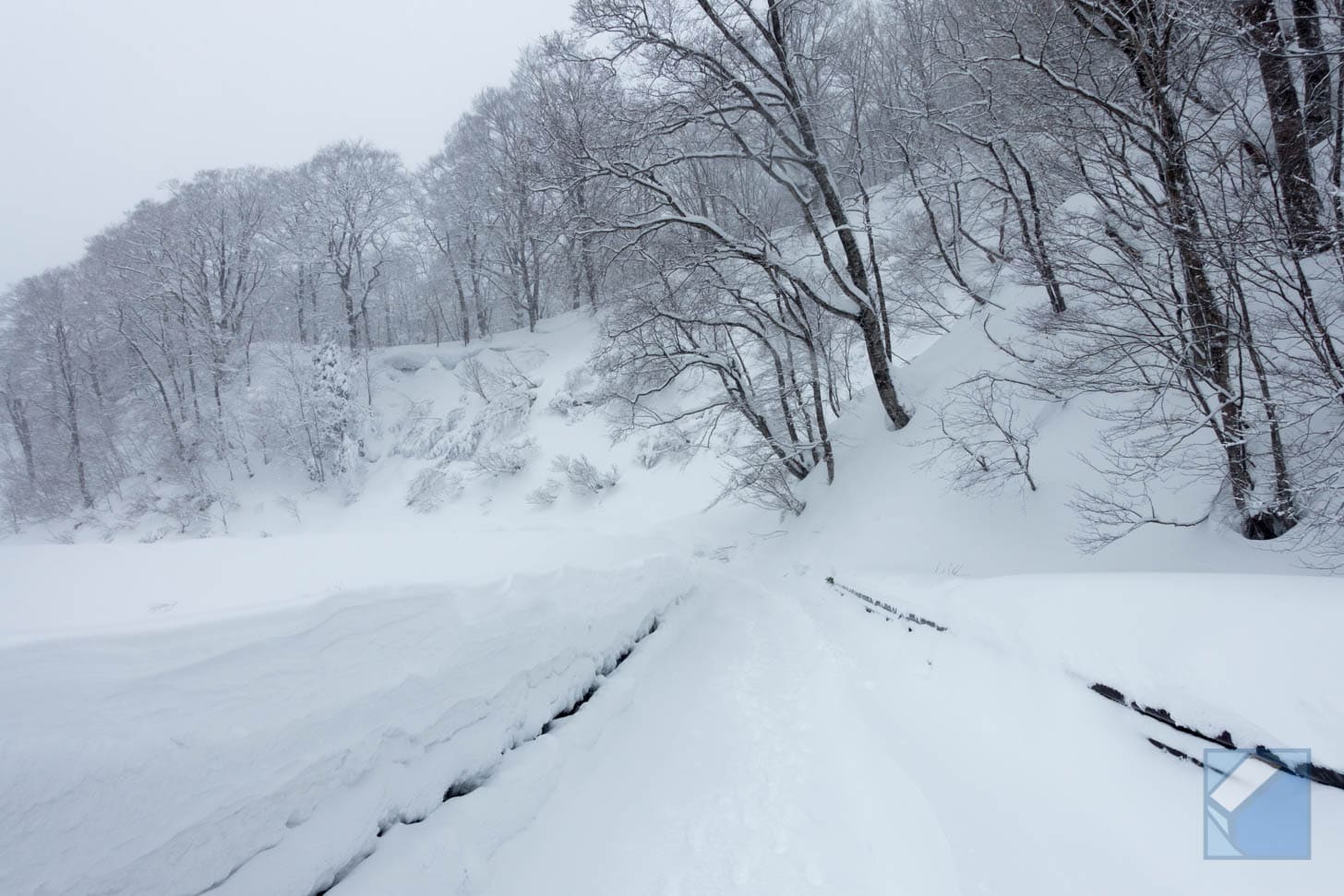
The hot spring water was slightly translucent, with a temperature that was just right—not too hot, not too cold.
Sitting in the bath, I could hear the gentle sounds of the surrounding forest, making it an incredibly peaceful and rejuvenating experience.
Final Thoughts: A Dreamy Nyuto Onsen Tour
I had always heard about Nyuto Onsen as a “hot spring paradise hidden in the mountains of Akita.”
But actually visiting and experiencing these incredible historic baths in the snowy landscape exceeded all my expectations.
Each hot spring had its own unique charm:
– Ogama Onsen: A former schoolhouse with a cozy, nostalgic feel
– Magoroku Onsen: Remote and rustic, with a stunning open-air bath
– Ganiba Onsen: Surrounded by nature, offering a serene and relaxing atmosphere
And of course, there are still four more hot springs in Nyuto Onsen that I haven’t explored yet!
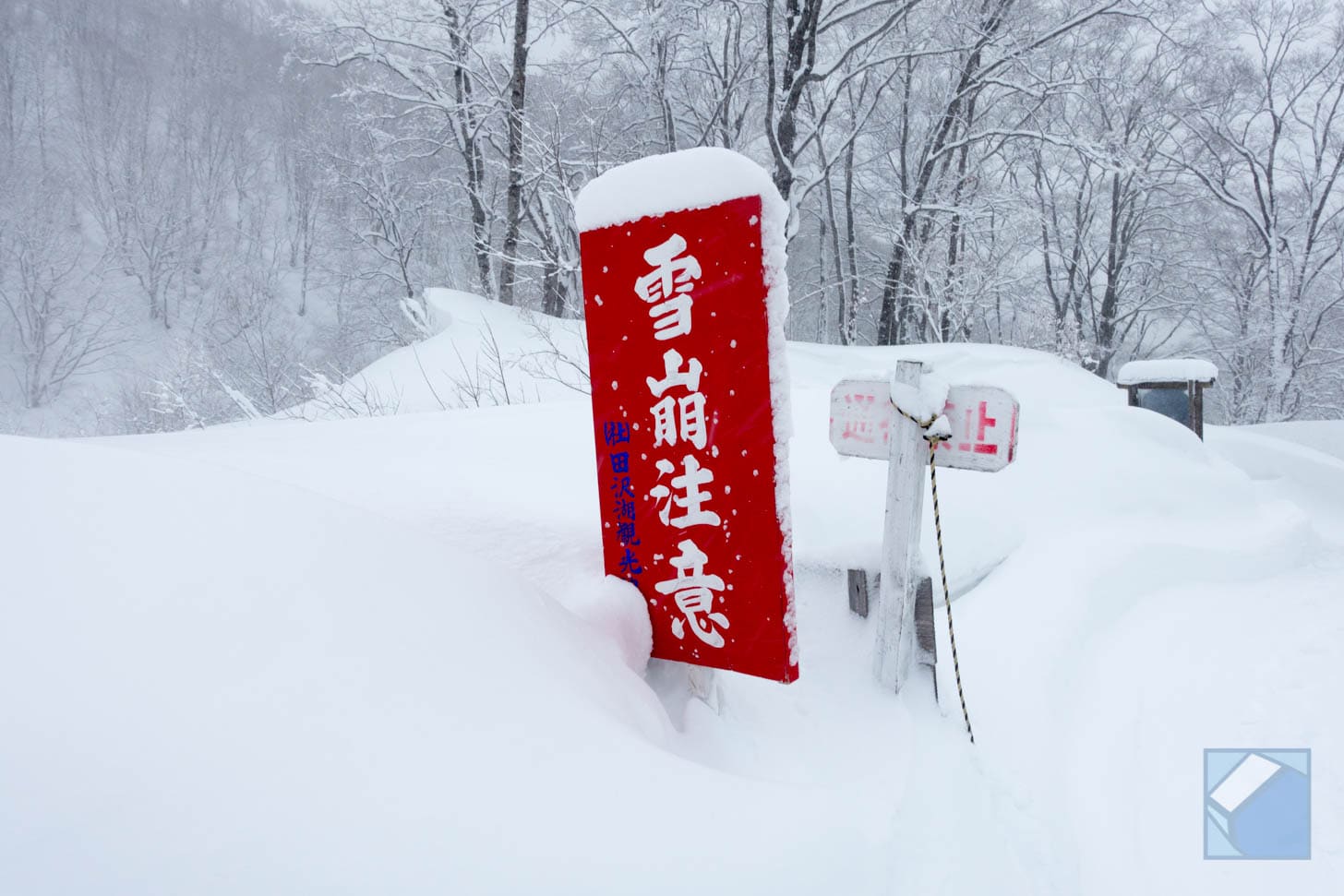
If you ever visit Akita, a trip to Nyuto Onsen is an absolute must—especially during the winter months, when the snow-covered landscape transforms these historic hot springs into a true wonderland.
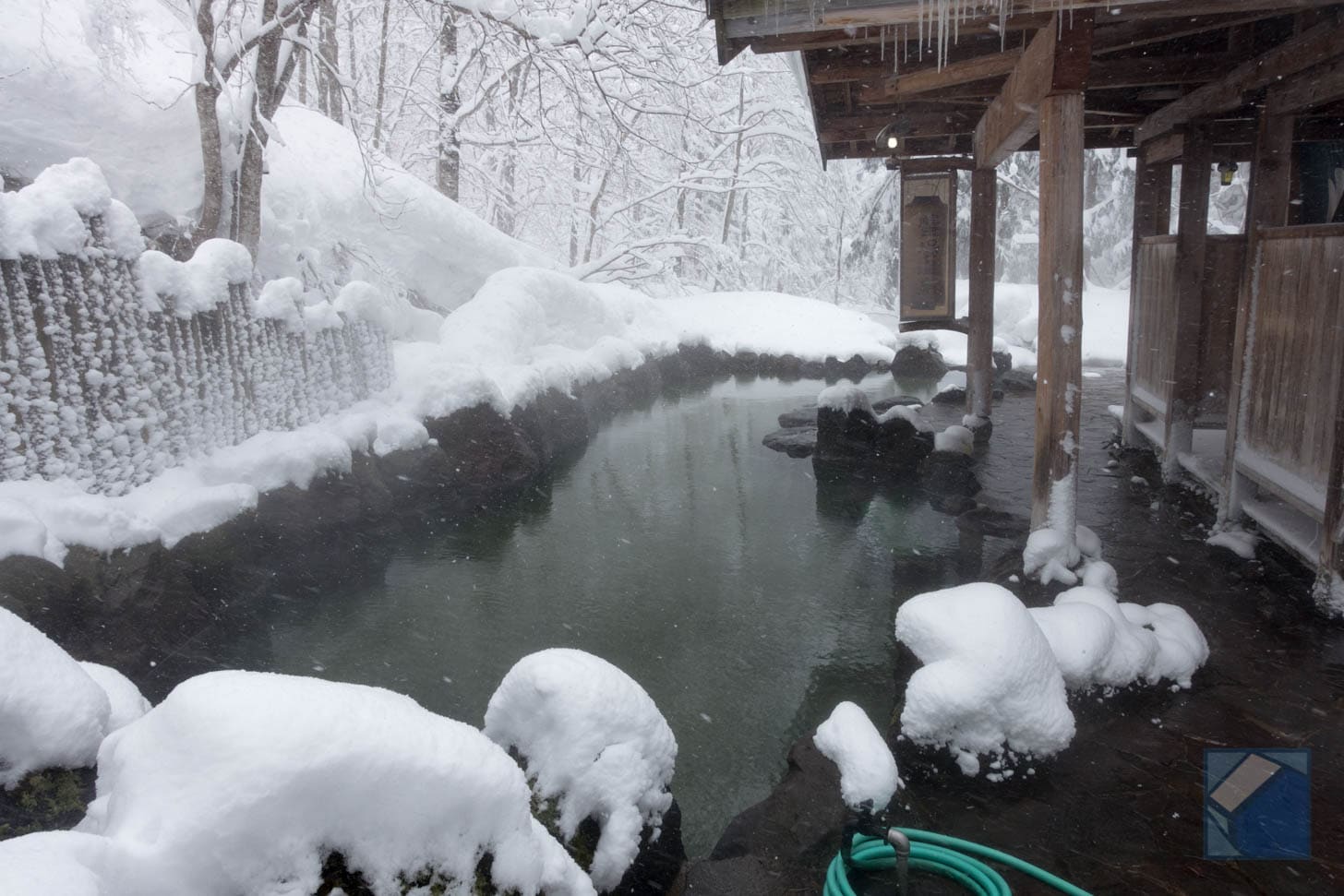
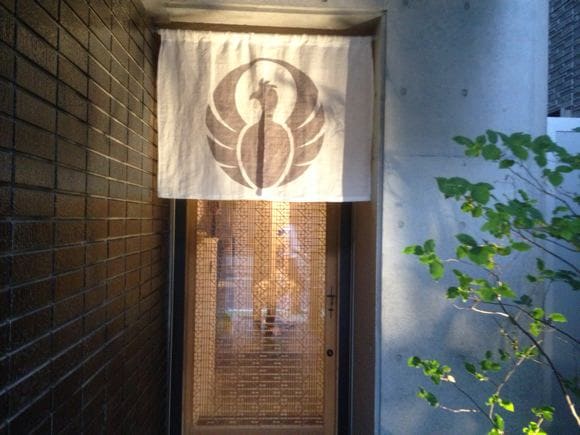
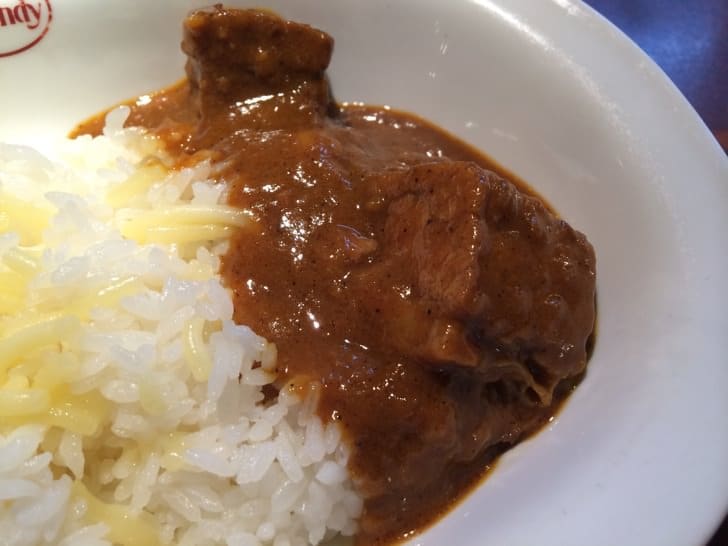
Comments